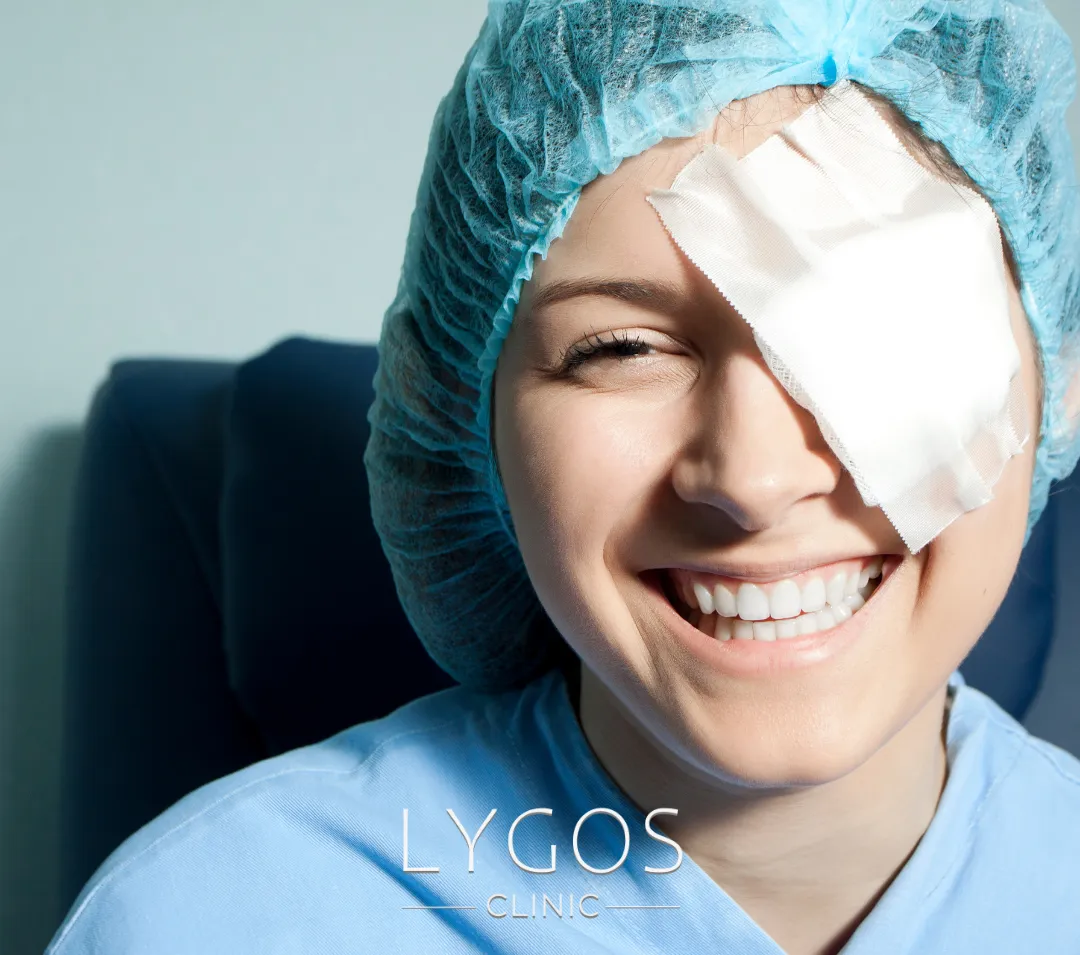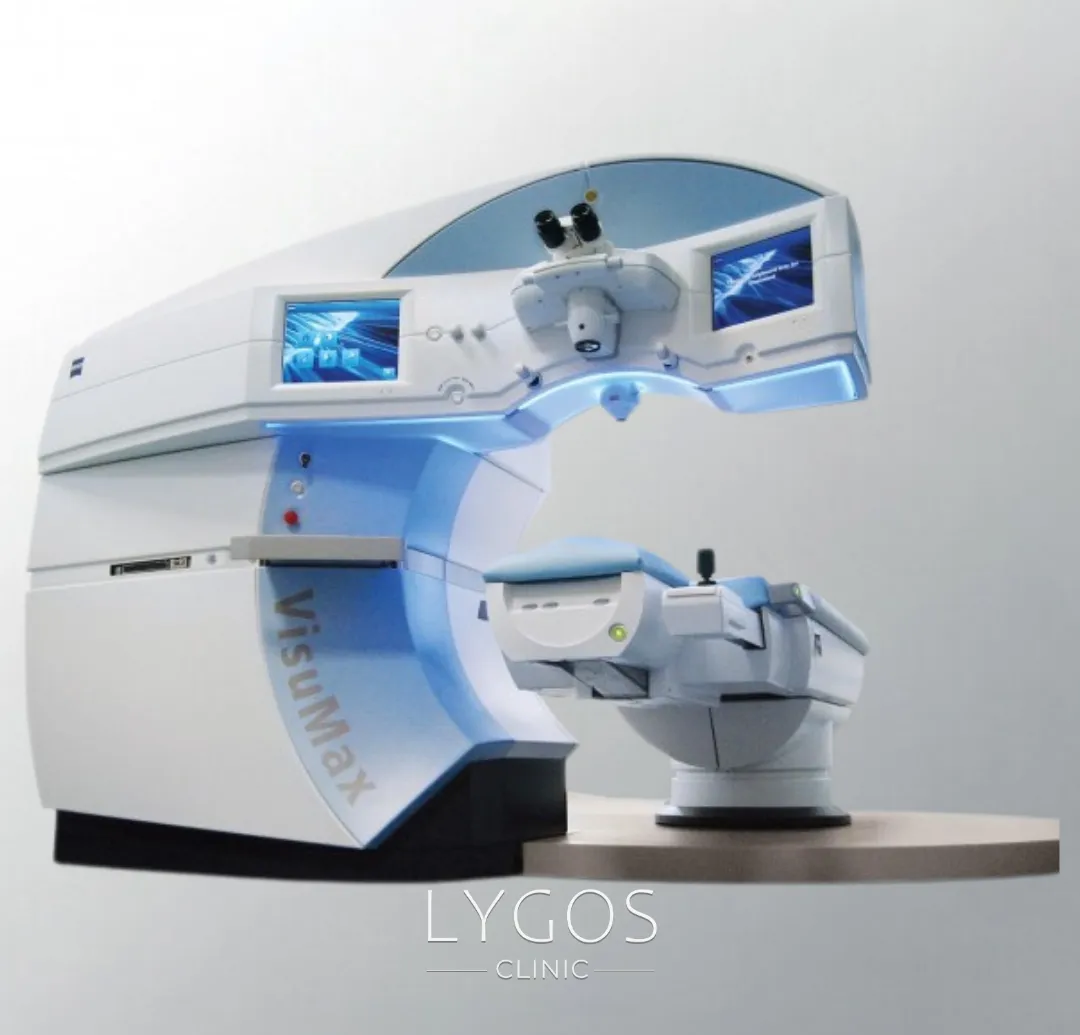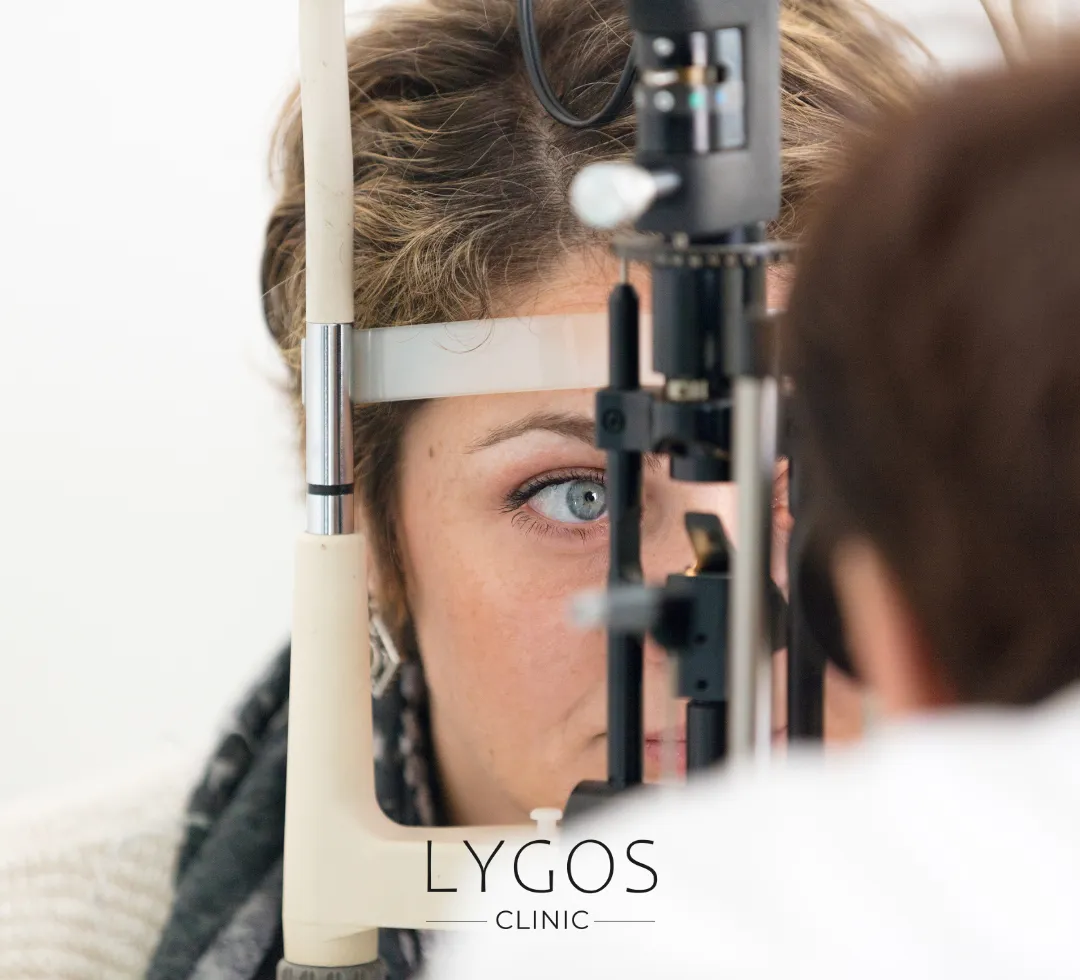What is Laser Eye Surgery?
Get a Free Consultation
Choose Your Topics
How is Laser Eye Surgery Performed?
In laser eye surgery, specialized surgeons use laser beams to remove problems or reshape tissues in the eye. This technique is highly effective for correcting vision problems. Laser eye surgery usually takes about half an hour for each eye. The most common method is refractive laser surgery. There are three main subtypes of laser eye surgery:
1. LASIK
In this procedure, two lasers are used to open and reshape the surface of the cornea. Surgeons open the protective layer on top of the cornea, then reshape the cornea. Once the procedure is complete, the protective layer is replaced without the need for any surgical suturing.
2. SMILE
In this technique, surgeons make a small incision on the surface of the cornea. This small initial incision can close spontaneously after the procedure. The SMILE method offers a less invasive approach. In this way, it provides a faster healing process.
3. Surface Laser Treatments (PRK, LASEK)
In these methods, surgeons perform the procedure by removing the surface layer cells on the cornea. This allows the procedure to be performed more comfortably. Over time, the surface cells regenerate on their own. PRK and LASEK are effective methods for corneal reshaping and usually have a longer recovery period.
Laser eye surgery helps patients to correct their vision problems effectively. It also offers a quick and usually painless recovery process. Each technique is selected according to the patient’s specific needs and eye structure. This ensures a personalized treatment plan. So, for those who want to say goodbye to glasses or contact lenses, laser eye surgery offers a reliable and long-lasting solution.
Who is Suitable for Laser Eye Surgery?
Laser eye surgery is an ideal option for problems such as nearsightedness or farsightedness. It is also an effective method in the treatment of visual defects such as astigmatism, which causes blurred vision. This surgery not only corrects visual defects, but can also be used to treat eye conditions such as cancer, cataracts, diabetic retinopathy or glaucoma.
The rays coming into the eye first reach the cornea and then travel to the lens. The lens acts as an oval-shaped lens to focus the light from the cornea onto the retina. The retina is a layer of specialized cells at the back of the eye. These cells convert light into electrical signals that are transmitted to the brain, allowing the image to be perceived. In eye reshaping surgery, the corneal tissue is reshaped using laser beams
This ensures that light is focused correctly on the retina and helps to achieve clear vision. Each procedure is customized to the patient's specific needs, resulting in an individualized treatment plan. Laser eye reshaping surgery offers a quick and usually painless recovery. Therefore, it provides a reliable and effective solution for people with vision problems.


Things to Consider in Laser Eye Surgery
Things to consider in laser eye surgery directly affect the process. Some people may experience discomfort such as burning and itching within a few hours after surgery. Usually, clear vision is restored a few days after the procedure. However, in some cases, this process may take between 3 and 6 months.
Doctors may prescribe relaxing medications for the side effects that may occur during laser eye surgery. It is important not to rub the eyes and to rest after the operation. The process of returning to daily activities may vary from person to person. It is usually expected between 1 and 3 days for activities. During this time, follow-up examinations are organized and the healing process is closely monitored.
In laser eye reshaping surgery, doctors use focused beams of light to remove or reshape the tissue on the surface of the eye. Studies show that the vast majority of people who undergo eye surgery do not need glasses or contacts even 5 years after the procedure. However, in some cases, the initial surgery may not have the desired effect and additional interventions may be required.
While this surgery is considered effective in treating visual defects, it may not be suitable for everyone. In some individuals, the visual defect may progress and worsen after the operation. Therefore, if you have vision problems and are considering laser eye reshaping surgery, it is recommended that you consult a health institution and get support from specialist physicians. Laser eye surgery, when performed by specialized surgeons, offers patients the chance to improve their quality of vision and get rid of glasses. However, it is important to be aware of the postoperative period and the personal healing process.
Risks of Laser Eye Surgery
Although it may be tempting to live without glasses or contact lenses, it is important to remember that laser eye surgery carries some risks of its own. Knowing that laser eye reshaping surgery is not suitable for everyone is critical to making an informed decision. Certain factors can lead to undesirable outcomes following procedures such as LASIK. So, what are the risks of laser eye surgery?
- Negative effects against the wound healing process: The presence of conditions such as diabetes, lupus, HIV, rheumatoid arthritis or the use of medications that may cause this effect.
- Pregnancy and breastfeeding: Hormonal changes can lead to the appearance of visual defects.
- Thin cornea thickness: Reshaping the surface of thin corneas can be difficult. Interventions on very thin corneas can cause a complication called corneal ectasia.
- Large pupils: It is a condition that increases the susceptibility to eye reshaping surgery.
- Dry eye: Disruption of the eye's moisture balance.
- Blepharitis: Inflammation of the base of the eyelashes.
Damages of Laser Eye Surgery
Damages of laser eye surgery can be seen in some people. These damages, which are usually temporary, are as follows:
- Dryness in the eye or feeling as if there is a foreign body in it,
- Hazy vision,
- Difficulty driving at night,
- Sensitivity to light,
- Small foci of hemorrhage in the white part of the eye,
- Pain.
Laser Eye Surgery Results

Laser Eye Surgery Costs
It is important for individuals considering this surgery to have a detailed discussion with a specialist, taking into account their own health status and risk factors. The information and support you will receive from health institutions and experts will help you make the right decision in this process.
Frequently Asked Questions About Laser Eye Surgery
Laser eye surgery, also known as eye reshaping, is a modern treatment method used to correct eye defects such as myopia, hyperopia and astigmatism.
Laser eye surgery is suitable for people who are nearsighted or farsighted. Thanks to this method, problems such as myopia, hyperopia and astigmatism are practically eliminated.
The risks of laser eye surgery include problems such as eye redness, watery eyes, sensitivity to light, and decreased night vision. In addition, infection or corneal irregularities may also occur.
BLOG

Is Breathing Through the Mouth Harmful?
Chose Your Topic Is Breathing Through the Mouth Harmful? Breathing is one of the most fundamental needs of life. However,

Does Rice Water Make Hair Grow? | Benefits of Rice Water
Chose Your Topic Does Rice Water Make Hair Grow? Natural methods in hair care have become quite popular in recent

Breast Lump | Types: Benign, Malign and Causes | LYGOS 2025
Breast Lump While cancer stands out as one of the most common health problems today, early diagnosis rates are also





